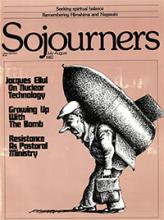Sitting on a bench in Peace Memorial Park, it is almost impossible to believe that the atomic bomb was dropped here. Inside the park's museum, photographs of devastated Hiroshima appear somewhat familiar. I think to, myself, "Yes, I recognize where that would be. Oh, and that too, that would be by the bridge." But when I step out of the museum, the photographs remain inside, and so does the destruction of Hiroshima.
Peace Park is expansive, beautiful, and bright. Trees are changing colors. Greens, browns, yellows, and reds splash the landscape. Pigeons look to be spawning by the thousands at every hour and are outnumbered only by the school children who swarm and gape at me. Toddlers run, followed by mothers and doting grandmothers in their kimonos; the constant shouts of excitement from the school pupils fill the air with the sounds of life. It's no wonder I have difficulty imagining a city that was leveled.
Inside the museum, a horrible tale is told. The charred bodies twist and churn my stomach. That a single bomb could annihilate a city so that I could see it from end to end is beyond imagination. Yet one bomb did so. All war is by definition inhuman. Broken attempts to limit its damage usually become the standards by which we measure our capacity for barbarism. Yet this episode in war seems particularly barbaric. Why? Is it the total lack of discrimination in use of the nuclear weapon? The inhumanity and coldness required in dropping such a weapon on all residents of a city? Is it the legacy of all the side effects, like radiation sickness and genetic defects?
Read the Full Article

